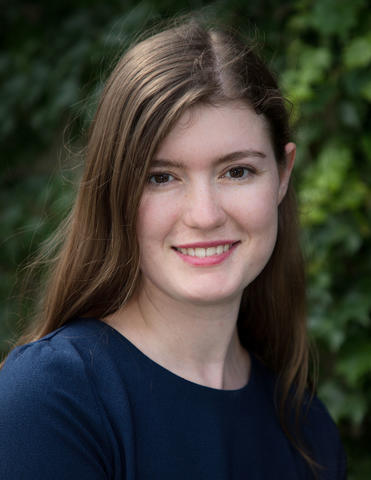
Amy Nippert
PhD Thesis:
Current Position:
Postdoctoral Fellow, Stanford University
Undergraduate Institution and Major:
University of Arizona, B.S., Neuroscience, 2015
Graduate Advisor:
Eric A. Newman, Ph.D., Department of Neuroscience
Description of Graduate Research:
My research focuses on how neurovascular coupling changes with diabetes. To this end, we are using a variety of techniques including laser Doppler flowmetry, electrophysiological recordings, and imaging of the cortex in vivo through a cranial window. In addition, our lab also looks at the mechanisms of neurovascular coupling at the cellular level and the interplay between neuronal activity, glial activation, and vascular responses.
Graduate Publications:
- Astrocyte regulation of cerebral blood flow during hypoglycemia. J Cereb Blood Flow Metab. 2022 Aug;42(8):1534-1546.
- Kuo SP, Chiang PP, Nippert AR, Newman EA. Spatial organization and dynamics of the extracellular space in the mouse retina. J Neurosci. 2020;40:7785-7794.
- Nippert AR, Newman EA. Regulation of blood flow in diabetic retinopathy. Vis Neurosci. 2020 Jul 20;37:E004.
- Nippert AR, Mishra A, Newman EA. Keeping the brain well fed: The role of capillaries and arterioles in orchestrating functional hyperemia. Neuron. 2018;99(2):248-250.
- Nippert AR, Biesecker KR, Newman EA. Mechanisms mediating functional hyperemia in the brain. Neuroscientist. 2018;24(1):73-83.
Graduate Abstracts:
- Nippert A, Chiang PP, Newman EA. Neurovascular coupling in the diabetic brain. Society for Neuroscience annual meeting, 768.14, Chicago, IL. October 2019.
- Nippert A. Blood flow in the visual cortex of awake mice. Poster presented at the 28th Symposium of Cerebral Blood flow, Metabolism, and Function, Berlin, Germany, 2017.
Graduate Awards And Honors:
- Doctoral Dissertation Fellowship, 2020-2021
- Ruth L. Kirschstein National Research Service Award (F31), 2017-2020
- Morris Smithberg Memorial Prize, 2016
GPN Committees:
- Seminar Committee, 2016-Present
- GPN Student Board Representative, 2017-Present
Professional Outreach:
- Brains at the Fair, Minnesota State Fair University of Minnesota Booth, August 2016-2018
- Brain Awareness Week, Oak Park Elementary, October 2016- 2017
Professional Memberships:
International Society for Cerebral Blood Flow and Metabolism
Thesis Committee Members:
- Paulo Kofuji, Ph.D., Department of Neuroscience, (Chair)
- Elizabeth Seaquist, MD, Department of Medicine
- Alfonso Araque, Ph.D., Department of Neuroscience
- Eric A. Newman, Ph.D., Department of Neuroscience
Research Categories:
- Visual Neuroscience
- Neuroimaging & Optogenetics
Rotations:
- Paulo Kofuji, Ph.D., Department of Neuroscience
- Bill Engeland, Ph.D., Department of Neuroscience
- Eric A. Newman, Ph.D., Department of Neuroscience
- Carolyn Fairbanks, Ph.D., Departments of Pharmaceutics and Neuroscience
- Lucy Vulchanova, Ph.D., Department of Neuroscience
Why Did You Choose MN?
I choose MN because of the dedication of students and professors to the program in addition to their own laboratories and research. It’s a great place to do research and to be a student.
Student Mentor and the Best Advice They Gave.
Nora McCall: She gave me a lot of helpful advice on choosing a mentor; including encouraging me to rotate with a mentor doing research I hadn’t previous considered one of my interests. She was also very good at helping me consider all aspects of potential mentors: funding, involvement levels, research, and lab environment.
